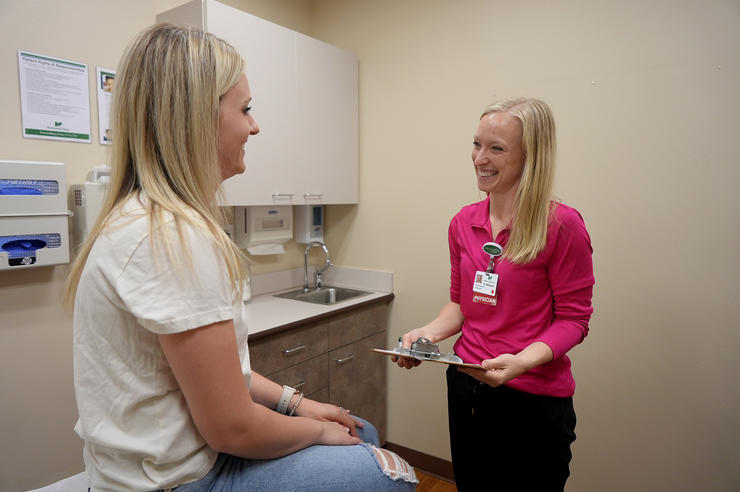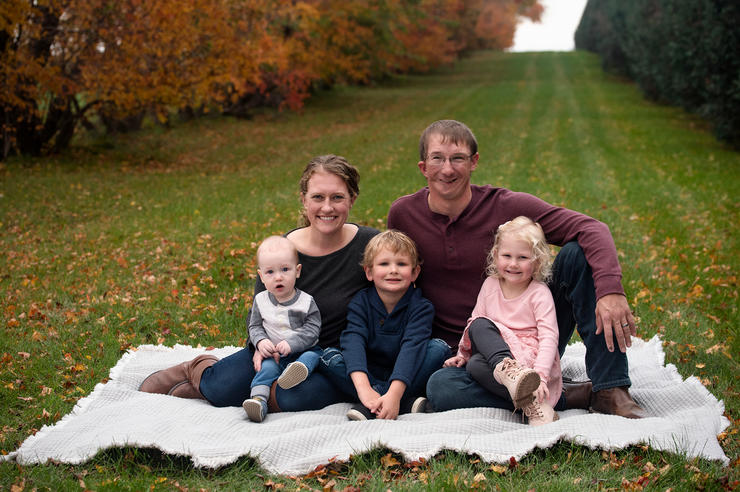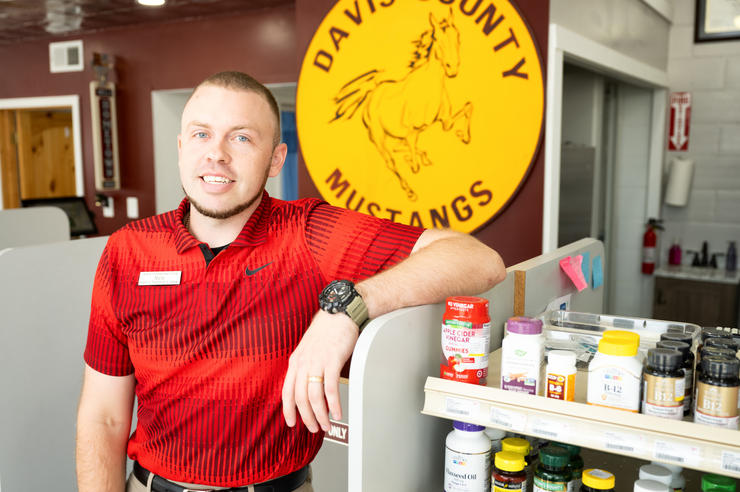Hawkeyes leading the way in health care administration
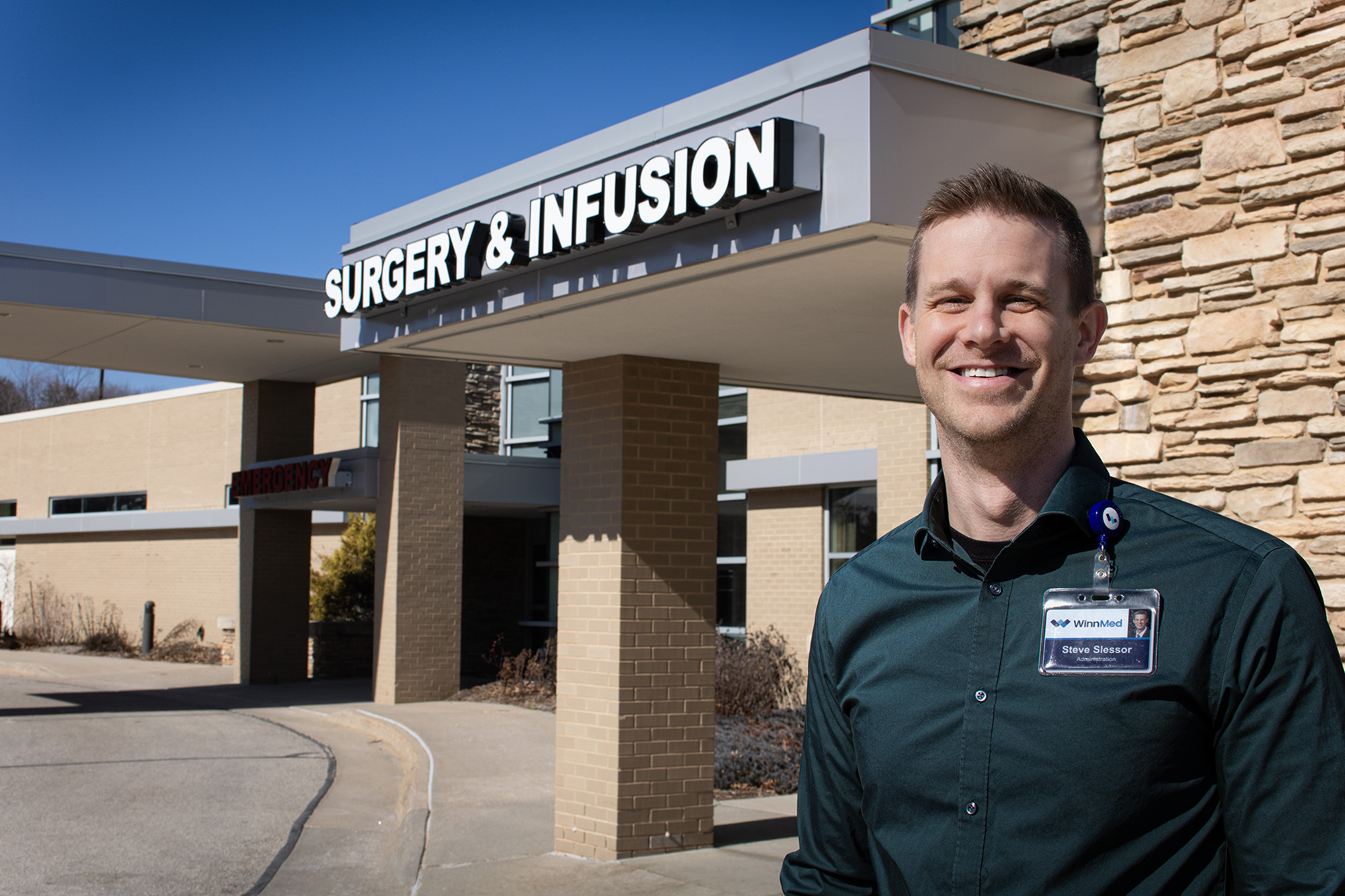
UI College of Public Health grad Steve Slessor is the chief administrative officer of WinnMed in Decorah, Iowa. Slessor says health care administrators “can make a real impact on people’s lives—whether that is giving someone a job or helping make it so that somebody lives who may not have under a different scenario.”
More than 6.6 million people work in hospital facilities in the United States—including more than 60,000 in Iowa. And while many work directly with patients in positions such as doctors, nurses, pharmacists, and therapists, there is another aspect to health care that occurs behind the scenes.
Health care administrators and managers are responsible for facilities, services, staff, budgets, and relations with other organizations, as well as improving access to health care services and implementing and shaping health care policy.
“There is an entire organizational structure within health care that people don’t always think about,” says Steve Slessor, chief administrative officer of WinnMed in Decorah, Iowa. “Health care is an organization and a business, and it needs a team to run it. We may not perform patient care, but if we do our job well, the difference we can make doesn’t just impact our hospital; it impacts the whole community.”
An estimated 476,000 people in the U.S.—5,900 in Iowa—serve in health administration. These workers can be found employed in a variety of areas, including hospitals, nursing homes, health departments, pharmaceutical companies, health insurance providers, and consulting firms.
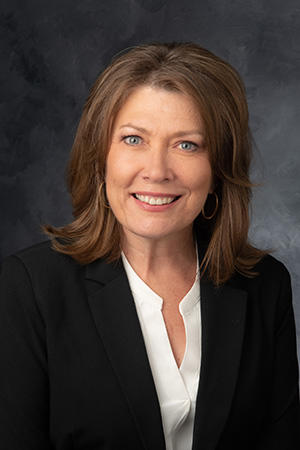
Kristin Wilson
“A Master of Health Administration (MHA) is an incredibly flexible degree,” says Kristin Wilson, clinical associate professor and director of the MHA program in the Department of Health Management and Policy at the University of Iowa College of Public Health. “With a degree like ours, the opportunities are literally unfolding every day. It’s only limited by what your interests are.”
The U.S. Bureau of Labor Statistics projects that employment in this career will grow 28% between 2022 and 2032, much faster than average. At the same time, rural health systems in the United States face myriad challenges. Nearly 30% of rural hospitals nationally—including 23% in Iowa—are at risk of closure due to financial losses on patient services and low financial reserves.
“We often say that place should not dictate the outcome of your care,” Wilson says. “And that’s one of the challenges we do have. But we also have so many assets in the state of Iowa and at the university that put us on the forefront and provide the opportunity to innovate in health.”
As the health care system continues to grow and diversify, Iowa is training its students to meet the challenges and opportunities associated with working in the health care field—rural and urban.
Business and health: ‘The best of both worlds’
Brooke Kensinger planned to be a dentist when she started as an undergraduate at the University of Iowa.
“At some point, I thought, ‘I don’t even like teeth. Why am I doing this?’” says Kensinger, who grew up in Newton, Winterset, and Marion, Iowa. “I talked to one of my high school teachers and said, ‘I really like health care. I just don’t want to be a dentist.’ And she asked, ‘Have you ever thought about health care business?’”
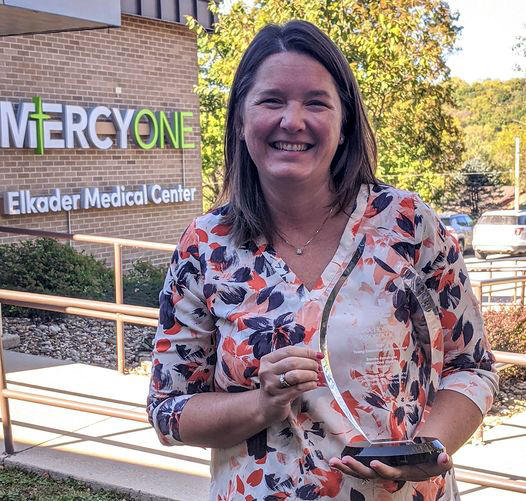
MercyOne Elkader Medical Center CEO Brooke Kensinger, a UI College of Public Health grad, received the Iowa Hospital Association’s (IHA) 2021 Young Executive Achievement Award, which recognizes up-and-coming health care executives who have made a significant contribution to health care in the state of Iowa. “You don’t have all the resources that you have in the large hospitals, so you have to be creative and wear a lot of hats,” Kensinger says. “So, it’s a unique environment, but you can have direct impact on patients’ lives. Without our services, rural Iowans would have a very hard time accessing health care.”
It just so happened that Kensinger was taking a microeconomics class at the time and was really enjoying it.
“It was the best of both worlds,” says Kensinger, who went on to receive a Bachelor in Business Administration (BBA) in 2003 and a Master of Health Administration (MHA) in 2005. She is now president of MercyOne Elkader Medical Center in Iowa.
Slessor, meanwhile, always knew he wanted to go into administration; the decision to go into health care came a bit later.
“My dad was a school superintendent, and I saw the impact he had on the community, but for whatever reason, I didn’t have an interest in school administration,” says Slessor, who grew up in Independence and Waverly, Iowa. “My uncle was the longtime CEO of Trinity Hospital in Fort Dodge, and my mother said, ‘Well, have you considered doing what Tom does?’ So, I spent some time with Tom and thought, ‘I like business, I like administration, I like the ability to make a big impact within the community at large, so let’s do this.’”
Kensinger and Slessor, who graduated from the University of Northern Iowa with a BBA in 2006 and the University of Iowa with an MHA in 2008, both say the real-world experiences they were able to get through Iowa’s MHA program helped prepare them for their careers.
“Whether it was performing roles within what at the time was Mercy Iowa City (now University of Iowa Health Care Downtown Campus) to working on real projects and various case studies within the classroom setting, there were a lot of opportunities to take advantage of,” Slessor says.
Kensinger agrees: “It’s a professional program. You dress professionally and you meet with executives from different hospitals. You network at the American College of Healthcare Executives (ACHE) annual meeting. I was involved in a lot of different areas of health care and see the full picture, and that serves me well as I navigate challenges now.”
“That alumni network has really opened a lot of doors for me in my career. The program is just so well supported by alumni. I never really thought when I was in my master’s program that I would be a CEO or a president of a hospital; it kind of happened organically. But I learned so much and I am grateful for all the people who have helped me along the way.”
Slessor says one of the things he appreciated most about Iowa’s MHA program was the relationships he made at Iowa.
“There are typically about 25 students, so you develop a close connection with everyone,” Slessor says. “Some of my best friends to this day are people I met in the University of Iowa program.”
Kensinger echoes that feeling.
“It’s exciting to see peers and people who have come before and after me have success,” Kensinger says. “In fact, just 25 miles down the road from my hospital, one of my classmates, Tim Ahlers, is president of Guttenberg Municipal Hospital and Clinics. That’s nice because we know and trust each other. When it comes to partnering and working for the greater good, you have to have good relationships with people, and it’s been really fun to be able to do that with a classmate.”

Iowa is known as the “Writing University” largely because of world-renowned graduate programs such as the Iowa Writers’ Workshop, but the university’s commitment to helping all students build strong writing and communication skills is evident in every corner of campus and every field of study—including the College of Public Health.
Steve Slessor graduated from Iowa with a BBA in 2006 and an MHA in 2008 and is now chief administrative officer of WinnMed in Decorah, Iowa. He says one of the most invaluable experiences he had at Iowa was a professional development seminar on business writing.
“It really hammered home that business writing is not about developing a 12-page essay,” Slessor says. “Business writing is about writing something that an actual individual who does not have a lot of time on his or her hands is willing and able to read. It really taught me the value of spending more time editing my work down. It was one of those learning moments that I still think about to this day.”
Read more: Iowa ranks No. 5 for writing and communications across disciplines
Kensinger also praises the Hawkeye alumni network. Iowa was one of the first universities to offer graduate studies in hospital administration and has more than 1,000 alumni who have worked or currently work in the field.
“That alumni network has really opened a lot of doors for me in my career,” says Kensinger, who did her internship at Huntington Hospital in New York and fellowship at Advocate Lutheran General Hospital in Park Ridge, Illinois, both of which had Iowa alumni in leadership positions. “The program is just so well supported by alumni. I never really thought when I was in my master’s program that I would be a CEO or a president of a hospital; it kind of happened organically. But I learned so much and I am grateful for all the people who have helped me along the way.”
Making an impact in rural health care, communities
The University of Iowa’s Master of Health Administration program fosters opportunities to expose students to rural health care and equip them with the skills needed to succeed there. This includes integrating rural health care topics into the curriculum, inviting speakers into classrooms, facilitating visits to rural hospitals and meetings with their leaders, housing the Rural Policy Research Institute, and encouraging students to join the Student Association for Rural Health.
“One of our goals is to provide all of our students a perspective of rural health care,” Wilson says. “It’s important to cultivate an understanding and awareness of rural health care because pretty much anywhere you go to work these days in health care, there’s going to be a rural component to it. It might not be a brick-and-mortar building, but we’re reaching out into rural health care in different ways, whether through technology or other arrangements in the communities.”
Kensinger and Slessor both grew up in small Iowa communities and know the important role that local health care plays in rural areas. Rural hospitals and clinics are the cornerstones for health in their communities, providing much-needed access to health care for patients close to home.
MercyOne Elkader Medical Center is one of the smallest hospitals in Iowa. And while Kensinger says working in health care in rural Iowa has its challenges, it’s also incredibly rewarding.
“You don’t have all the resources that you have in the large hospitals, so you have to be creative and wear a lot of hats,” Kensinger says. “So, it’s a unique environment, but you can have direct impact on patients’ lives. Without our services, rural Iowans would have a very hard time accessing health care.”
Slessor says working to keep the community strong and fostering community connections is a large part of what keeps him coming back day after day.
“The enormous difference you can make to an entire community is pretty neat,” Slessor says. “Health care is a relationship-based industry, and one of my favorite parts of the job is developing relationships with staff and partnerships with other community entities, such as Luther College or economic development.”
“Health care is an organization and a business, and it needs a team to run it. We may not perform patient care, but if we do our job well, the difference we can make doesn’t just impact our hospital; it impacts the whole community.”
Growing local health care is another priority for the two Iowa alumni.
“I love bringing new service lines to a community that needs it,” Slessor says. “There’s a ton of excitement here. We’re embarking on a $50 million building project. We purchased the local retail pharmacy in town and we’re moving it to our campus and establishing some new ways in which it can interact with our patients. We’re adding OB/GYN. We’ve added dermatology, allergy, and a new comprehensive wound center. We’ve added a lot of services in the last few years.”
Kensinger says MercyOne Elkader Medical Center has acquired two clinics in the past couple of years.
“We need primary-care access in this area,” Kensinger says. “It’s just so important.”
Rural health care facilities also serve as economic anchors, providing well-paying jobs and infusing the economy with spending on goods and services.
“We employ almost 600 people at WinnMed. We are the largest employer in our region, and that’s not atypical,” Slessor says. “In a lot of these small communities, the hospital is one of, if not the largest employers in town. We’re a huge economic driver for the community.”
Encouraging the next generation of health care administrators
Slessor says he enjoys interacting with the Iowa College of Public Health, whether with students, faculty, staff, or alumni. He says that when speaking with students, he stresses the variety of jobs they can get with a health administration degree.
“It’s not just working for a hospital,” Slessor says. “You can go into consulting. You can go into the insurance arm. You can go into medical clinic management. Find out what the right fit is for you, and then go in that direction.”
Health care management is a dynamic and rewarding profession. The University of Iowa College of Health’s Master of Health Administration program provides graduates with a comprehensive understanding of patient-centered health care as well as the skills needed to navigate complex administrative and management systems.
It’s not an easy industry, Slessor admits, but it’s a rewarding one.
“You can make a real impact on people’s lives—whether that is giving someone a job or helping make it so that somebody lives who may not have under a different scenario,” Slessor says.
Kensinger encourages students interested in health care administration to soak up every single opportunity available to them.
“For example, when you’re in your internship, don’t just work on a project. Ask to shadow every department of the hospital so you can understand how they work together,” Kensinger says. “Sit in on an autopsy; sit in on a surgery; sit in on the birth of a baby. Really immerse yourself into the hospital environment so you understand the operations from the bottom to the top.”
And while health care administrators usually aren’t directly engaged in patient care, they sometimes get involved a little bit—especially when they work in a rural health care facility.
“If there’s an emergency, we drop everything we’re doing and it’s all hands on deck ensuring that we have all resources ready to help the patient,” Kensinger says. “From clearing the parking lot because that’s where our helicopter lands or working with the family. Coming together to help our patients get care quickly or to a higher level of care quickly is one of my favorite parts of the job.”
